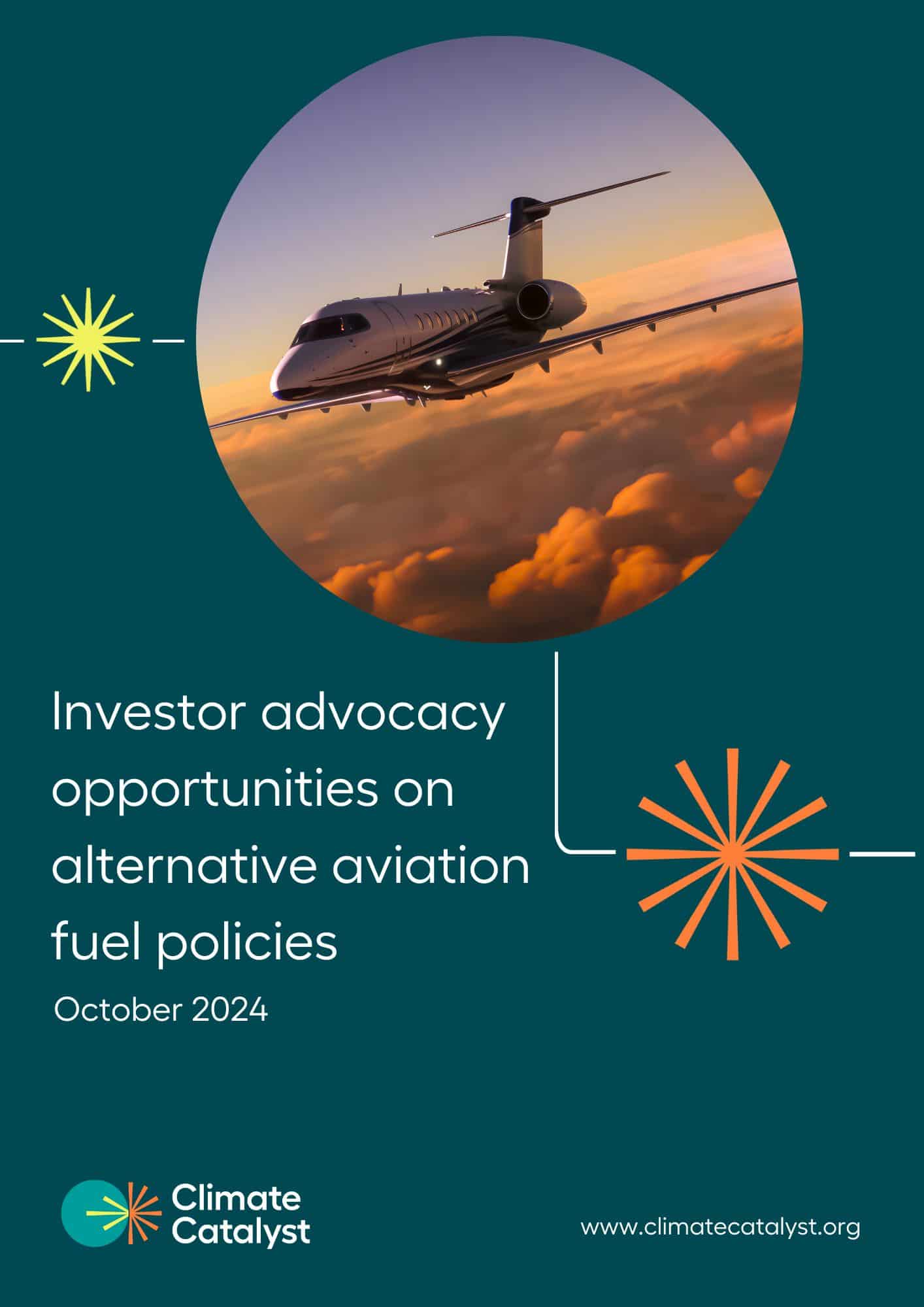Government mandates across Europe and the UK are designed to send strong demand signals with clear targets that support the sustainable scaling of e-fuels. These policies aim to drive growth in the SAF market and attract significant private investment needed to scale and commercialise this technology, with governments providing public funding, mainly at the research and development (SEED) stage. However, the immaturity of the technology and the overall market for more nascent SAF, such as e-fuels, has created risks around feedstock supply, specifically access to competitively priced renewable energy & green hydrogen in the region, concerns of revenue certainty and challenges with plant construction or commissioning. Moreover, current policies supporting e-fuels lack considerations of justice and environmental factors, which are essential for the market’s sustainable growth and for delivering financial returns to investors.
These collective elements make it difficult for investors and financiers to consider projects as ‘bankable’ without additional market interventions. As a result, European SAF production, especially for the highest integrity fuels, has started to stagnate, raising concerns that current mandate targets will eventually get revised and ambition reduced and diluted.
The following EU/UK policies and overarching policy insights present opportunities for investors to play a critical role in advocating for ambitious, credible mandates and regulations to guide the trajectory of the aviation fuels transition on a path towards the highest integrity and longevity for the sector to reach net zero by 2050.
EU aviation fuel policies
ReFuelEU Aviation Initiative
ReFuelEU will be open for revision in 2027, by which time ambition levels should be at least maintained, if not improved upon. There is a risk from delay in SAF plant deployment that the Commission may relax some of the stringency in the mandate, for example around things like bio-SAF feedstocks, to avoid the regulatory targets being missed. Investors can advocate and express support for the current ReFuelEU regulatory targets to be met and strengthened via engagement with the wider ecosystem to ensure consensus and broad support and mobilisation of ratcheting up e-fuels portions of the target.
Parallel to this, the EU Emissions Trading Scheme funds are currently acting as a revenue certainty mechanism (with ~2bn Euros dedicated for buyers of SAF to be able to claim back the costs based on the quality of the LCA of the fuel is). Investors can call for the EU to finalise this scheme as a priority, as an important component of scaling the e-fuel market and to claim back some of their investment (as e-fuels will be eligible for more of the funds).
Clean Industrial Deal policies
Following the 2024 elections, the EU Commission is evolving its focus from the Green Deal Industrial Plan towards a ‘Clean Industrial Deal’, and it is expected that industrial decarbonisation policies will flow from this. The lack of progress from the aviation sector in addressing its climate impact means adjacent policies need to be considered. Investors could advocate for new policy instruments aimed at addressing this, such as scaling zero emission flight technologies, strengthening hydrogen strategies (such as hydrogen auctions to support producers) and prioritisation, as well as supporting demand management measures including kerosene taxation via the Energy Taxation Directive, carbon pricing and investment into improved rail infrastructure.
UK aviation fuel policies
Revenue certainty mechanism
The new Labour government has committed to delivering a revenue certainty mechanism for aviation fuel procurers via the SAF Bill announced in July 2024. It is anticipated that they will re- launch the consultation for the mechanism, which needs to be designed to prioritise equity, environment and the just transition. The investor community could consider engaging with the consultation and expressing their support for a mechanism that is designed to prioritise the highest integrity fuels – e-fuels – as well as an equitable fuel transition. Similarly to the EU’s revenue certainty mechanism, this policy should provide investors assurance that UK policymakers are committed to supporting the SAF market and are applying funds to mitigate some of the investment risk.
Carbon Pricing measures
The previous UK government planned to implement a new import carbon pricing mechanism from 2027 (similar to the EU’s Carbon Border Adjustment Mechanism [CBAM]) on carbon-intensive products including steel and hydrogen. This will have an impact on aviation value chains, incentivising a greater uptake of SAF and the development of new technology. It is currently unclear whether the new Labour government will pursue the same initiative. Investors should monitor and support the development of such a mechanism, assessing the impact it would have on their existing portfolios and advocating for companies to enhance their carbon reporting and carbon pricing considerations through credible, transparent reporting.
Additional overarching policy recommendations for investors and financial institutions:
The following set of insights support the above policy positions in informing institutional investors and financial institutions on how they can make internal policy changes and shape their external policy advocacy approaches to ensure their portfolio companies are transitioning towards net zero through various interventions:
- Enhance understanding and oversight of global and regional aviation fuel policies, including SAF mandates and regulations for alternative fuel feedstocks, and their environmental and equity impacts, with the aim of enabling policy advocacy activities and ensuring robust strategies are developed by the aviation industry.
- Participate in positive advocacy for the highest integrity alternative fuels (such as e-fuels) from an environmental and equity standpoint, to mitigate and avoid investment into biofuels that will lead to short and long term environmental harm.
- Leverage investor stewardship and corporate engagement to ensure aviation companies disclose their policy positions and alternative fuel strategies, such as SAF procurement policies, and undertake due diligence in partnerships and investments (including direct investments, firm offtake agreements, and venture capital investments) in prospective e-fuel projects.
- Support policies that favour promising decarbonisation solutions for aviation, such as investing in R&D for new e-fuels production processes, and participating in cross value chain partnerships to help the industry navigate its risks and challenges, particularly for renewable energy and hydrogen availability for e-fuels production.
- Develop informed policy positions to guide the aviation industry’s transition, ensuring a just transition for workers and a strong emphasis on the environmental and social impacts embedded in SAF production. Consider justice, equity, and the environmental implications of alternative fuels, like land use change and food security, to prevent adverse effects in supply chains.
- Advocate for the adoption and implementation of a robust and widely-applicable book-and- claim system, to streamline SAF-related regulatory reporting and to reduce emissions associated with the bunkering and distribution of SAF. This will help to reduce the risk of double-counting and improve transparency.
For further reading and insights on key policies and related summaries, explore the list below:
- Climate Catalyst’s US SAF policy summary
- Climate Catalyst’s UK SAF policy summary
- Climate Catalyst’s EU SAF policy summary
- Climate Catalyst’s SAF Explainer report
- Climate Catalyst’s SAF Explainer infographic
- Climate Catalyst’s curated aviation resource list on Altiorem

Download this resource
You can download this resource in its current form using the button below. We intend to update this resource over time, be sure to check back for updates to these policy recommendations and other timely, more relevant updates.



